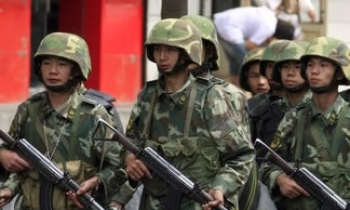Death threats have been made against the Al-Jazeera in Yemen.
Murad Hashem, Al-Jazeera's bureau chief in Sana'a, told the Committee to Protect Journalists (CPJ) that on Sunday morning an unknown caller contacted his office and left a threatening message with his secretary that said: "Tell the bureau chief that his death is imminent. By God, we will get to him [even] at his home," the caller said.
Hashem said that in recent days Al-Jazeera crews have extensively reported on violence in the south and north of Yemen. He also told CPJ that he received a similar threatening call in April, and says that he now fears for his safety.
"We are deeply concerned for the safety of Murad Hashem and all other Al-Jazeera employees in Yemen," said Mohamed Abdel Dayem, CPJ's Middle East and North Africa programme coordinator. "We call on the Yemeni authorities to investigate this threat, and on the government to end its vilification campaign of the media. We hold the government responsible for the safety of all of Al-Jazeera's employees in Yemen."
"This kind of intimidation must be met with resolve and clear purpose to defeat the enemies of press freedom," said Jim Boumelha, International Federation of Journalists (IFJ) President. "The authorities must take any threat to journalists seriously and act to prevent any harm coming to them." He said, "These attacks on independent media do a disservice to democracy in Yemen. Those who encourage violence against journalists will be held responsible for any attacks that may ensue."
Hashem told CPJ that the phone threat is of concern in context of the deteriorating press freedom environment in Yemen. "There is a massive incitement campaign against us by media affiliated with the ruling party," he said. "Officials publically incite the masses against us. Party-affiliated newspapers have said that a jihad against Al-Jazeera and its journalists is a religious and nationalistic duty. There have been assaults on our staffers, we have been prevented from doing our work many times, and we have received threatening messages and calls." Hashem said Al-Jazeera has about 30 staffers in Yemen.
In a separate incident Monday, an Al-Jazeera crew was prevented from covering a parliamentary session in Sana'a. Hashem told CPJ that parliament met to question the vice president for security affairs and the ministers of defense and the interior on recent violence in the south and north of the country. "All media organisations except Al-Jazeera were allowed to cover the session," he said.
In recent months, Al-Jazeera has been under repeated attack. Masaad al-Lahibi, a member of parliament, criticised Al-Jazeera's coverage of Yemeni issues in the July 12 session of parliament and called for closing its bureau in Yemen, according to local news reports. "The Al-Jazeera channel has become a source for criticising Yemeni society... it airs what is being provided to it by forces that are against Yemen and it is blessed unity," local press quoted al-Lahibi as saying.
Since April, armed clashes and violence between government forces and dissatisfied protesters have been reported in various parts of southern Yemen. Southerners accuse the government of marginalising the region. CPJ has documented numerous cases in which government and security forces imposed censorship and arrested journalists. At least one newspaper has come under physical attack.









